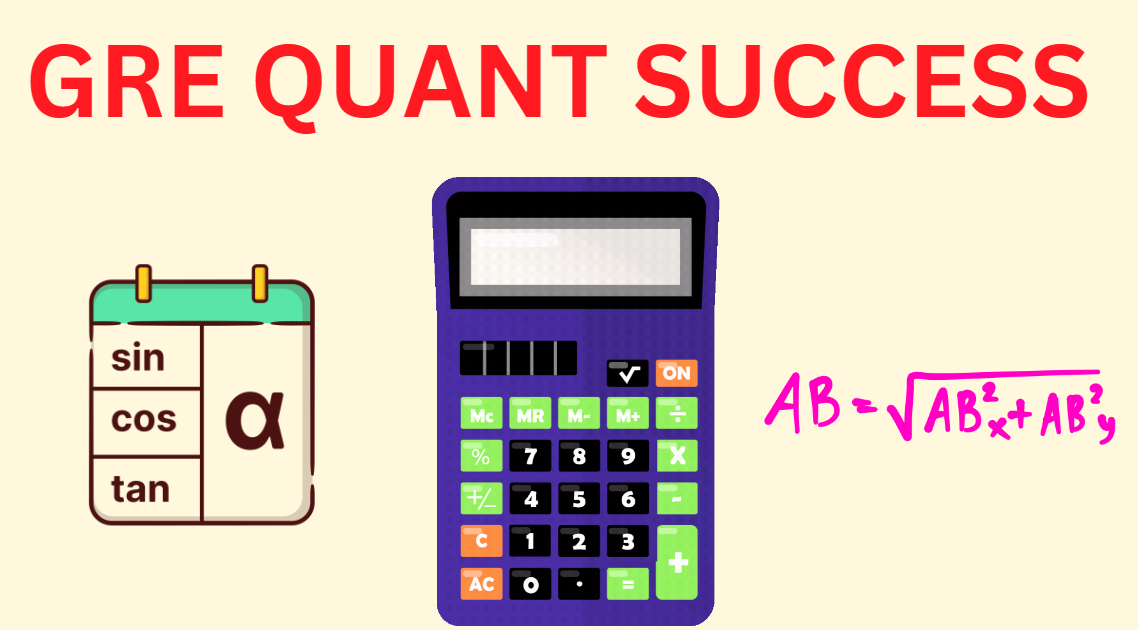The GRE scoring system is very easy to understand. Presently, the Graduate Record Examination (GRE) is a very common test. It fulfills admissions requirements. So, many graduate schools can accept students in the United States.
Moreover, the GRE evaluates a candidate’s verbal reasoning. It assesses their quantitative reasoning and critical thinking. Furthermore, the GRE will also test your writing skills. It has all sections that are vital for success in the academic and professional arenas. Therefore, you must understand the GRE scoring system. And that’s exactly why we are here.
Have you completed your GRE registration? The next step is to understand the GRE scoring system. If you do not register yet, we have your back. Learn how to register for GREs here.
The article provides simple steps for GRE registration. Then, you need to prepare for the GREs. The breakdown of how GRE scores is invaluable. The calculations will give you the knowledge you need to ace the test confidently.
Navigating the GRE Scoring System
The GRE is more than a test of your knowledge. It measures your potential to succeed in a tough academic environment. Furthermore, the test ensures fairness and accuracy.
The administration has divided the test into three main sections.
- Firstly, Analytical Writing
- Secondly, Verbal Reasoning
- Lastly, Quantitative Reasoning.
The committee scores each section separately. Therefore, it is important to understand the weightage. You must know the grading standards for the GRE. Check the GRE Official Website for full GRE scoring guidelines now.
The GRE Analytical Writing Section
The Analytical Writing section of the GRE measures your ability to think critically. Furthermore, it tests how you communicate ideas. The section consists of two essay tasks:
- Analyze an Issue
- Analyze an Argument.
Regardless, both tasks require logical reasoning. You must have clear organizational skills. Strong writing skills matter. Moreover, you must structure the responses well. It is essential.
Analyze an Issue
Firstly, the task asks for an opinion on a general topic. Next, you evaluate the issue and take a clear position. Your response should provide logical reasoning. Also, relevant examples pleases the GRE scoring system. An organized essay strengthens your argument. Clear and precise language will improve your score. In short, you must show critical thinking. And, supporting your ideas effectively is key to success.
Analyze an Argument
Secondly, the task requires you to evaluate a given argument. However, you do not express personal opinions. Instead, you analyze the argument’s reasoning and evidence. Foremost, you identify logical flaws and weaknesses. As a result, A strong response discusses gaps in logic. It does not discuss assumptions. An organized critique helps demonstrate strong analytical skills.
Scoring and Evaluation
The Analytical Writing section is scored on a scale from 0 to 6. Scores increase in half-point increments. Each essay is graded twice. Initially, a human scorer evaluates your response. However, a computer program called an e-rater assigns a score. If the two scores differ, a second human reader reviews the essay.
Importance of Structure
Strong organization is essential for a high score. Therefore, each paragraph should have a clear purpose. Next, use transition words to create a logical flow. Support your ideas with specific examples. However, avoid vague statements and grammatical errors. Precise writing improves clarity. The essay shows strong analytical and writing skills.
The GRE Verbal Reasoning Section
Secondly, the Verbal Reasoning section is based on written material. It scores your interpretation. Furthermore, the section assesses your reading comprehension. Therefore, increase your vocabulary and critical thinking skills. Furthermore, strong verbal reasoning skills help you grasp complex ideas. Next, you conclude. The section includes two parts. Subsequently, each contains about 20 questions.
Question Types
The Verbal Reasoning section includes three main question types.
- Firstly, Reading Comprehension questions test your ability to understand passages. You answer related questions.
- Secondly, Text Completion questions require you to fill in missing words in sentences. You must use contextual clues.
- Lastly, sentence Equivalence questions ask you to choose two words. The best answer completes a sentence with the same meaning.
Adaptive Testing
The GRE scoring system uses an adaptive method. The computer selects questions based on your performance. If you answer correctly, you receive harder questions. If you answer incorrectly, the questions become easier. In other words, the method adjusts the difficulty level to match your skill. Your final score reflects your overall performance.
Scoring System
Scores for the Verbal Reasoning are from 130 to 170. Scores increase in one-point increments. Your score depends on the number of correct answers. However, the difficulty level of the questions factors in as well. Higher scores indicate strong verbal reasoning skills. As a result, you achieve academic success.
Strategies for a high score
You need to improve your word pool. Furthermore, practice reading complex texts. Next, focus on understanding the main ideas and logical structure of passages. Thus, you learn to identify context clues in sentences. Practice answering different question types to improve accuracy. In short, reading well leads to a high score.
Importance of the section
Strong verbal reasoning skills lead to success. They help you understand complex texts. Also, you can analyze arguments and think critically. The skills are useful in research, writing, and communication. Practice improves verbal reasoning. It enhances problem-solving abilities. A high on the GRE scoring system shows an understanding of language skills.
The GRE Quantitative Reasoning
The Quantitative Reasoning section is based on numerical data. It also tests your problem-solving skills. You can use mathematical models. The section will test your concepts. It involves basic arithmetic. GRE will test your algebra and geometry. Therefore, practice is essential. As a result, you achieve success in many graduate programs.
Question Types
The Quantitative Reasoning section includes four main question types.
- First, Quantitative Comparison questions ask you to compare two values and determine their relationship.
- Secondly, problem-solving questions require you to calculate numerical answers. In other words, you select the correct choices.
- Thirdly, Data Interpretation questions test your ability to analyze graphs and charts.
- Lastly, Numeric Entry questions require direct number inputs.
Adaptive Testing
The section follows an adaptive testing model. It is similar to the Verbal Reasoning section. The second section is linked to the performance in the first section. Therefore, answering correctly leads to harder questions. In contrast, incorrect answers result in easier ones. Your final score reflects accuracy and difficulty level.
GRE Scoring System
Quantitative Reasoning scores are from 130 to 170. It increases in one-point increments. Your score depends on the number of correct answers in addition to the difficulty of the questions you encountered. A higher score demonstrates strong numerical reasoning. You have the problem-solving skills for science, engineering, and business.
Tips for Success
You can review math concepts. Furthermore, practice problem-solving techniques. You can learn to recognize question patterns. Also, apply efficient strategies. However, manage time wisely as some problems require quick calculations. You can use estimation and logical reasoning. Regular practice improves accuracy and speed. Moreover, a strong foundation leads to better performance.
Unscored Research Section of the GRE Scoring System
In addition to the above sections, there is also an Unscored Research Section. Some also call it the Variable or Unscored section. However, it does not contribute to your score. ETS uses the section for psychometric purposes. It is designed to look like the scored sections. So, the test-taker should attempt it seriously.
ETS places this section randomly within the test. Therefore, it is difficult to identify it. Moreover, the section may contain Verbal or Quantitative questions. In other words, it mimics real test sections. Skipping is not an option. As it appears like any other section, treat it seriously to maintain focus. You develop test endurance. Also, it improves test-taking habits for better performance.
How to Calculate Your Composite Score in GRE Scoring System?
Now, you understand the GRE scoring systems for the Analytical, Verbal, and Quantitative sections. However, you might wonder how the scores are combined for the final score.

Step 1: Convert Your Verbal and Quantitative Scores to a Scaled Score
The raw scores you receive from the Verbal and Quantitative Reasoning sections are converted into scaled scores. A complex algorithm combines the score. It takes into account the level of difficulty of the questions and the number of correct answers. Finally, the grading method ensures you can compare the scores across different test sessions.
Step 2: Combine the Scaled Scores
Next, the algorithm combines the raw Verbal and Quantitative Reasoning scores. However, it is often a 50-50 split. As a result, it forms the total GRE score. The combined GRE scoring system ranges between 260 and 340.
You can use the GRE Scores site to decide which scores to send to institutions. In other words, you choose which set of scores the institutions should receive. As a result, it is helpful for students taking the GRE more than once. They want to report the best scores.
Interpreting Your GRE Scoring System Report
The initial GRE score report includes your scores for Verbal Reasoning and Quantitative Reasoning. Furthermore, it also mentions the corresponding percentiles and scaled scores. As a result, you learn how you perform in relation to others.
The percentile shows test-takers who scored less than you. For example, the test mentions the 80th percentile. Then, 80% of other test-takers scored lower than you. It is insightful in determining the competitive position.
Apply to Universities with GRE Scoring System
After getting the GRE results, you need to apply for admission. Usually, you can get the GRE score for free to 4 to 5 universities from your ETS account. GRE Admissions Resources offers proper guidelines for sending scores to the selected universities from your account. However, make sure to first log in to your ETS account.
Nowadays, many universities give the opportunity to get admission without GRE scores. You can visit here to learn which universities are accepting without GRE scores.
Prepare for the GRE Scoring System
We know you are preparing for the GRES. Therefore, understanding the GRE scoring system is crucial. Now, you can strategize test-taking. The following tips make GRE preparation easier.
- Foremost, good preparation leads to a high GRE score. Therefore, learn the test format. Know the question types and instructions. As a result, you move quickly through the test. You avoid confusion. Clear directions save time during the exam.
- Secondly, use official GRE materials for accurate practice. The resources reflect real test questions and scoring. Practicing builds confidence. It improves problem-solving. Also, regular exposure reduces test-day anxiety.
- Practice with a timer to match the real test. Time management is key to completing all questions. Full-length practice tests improve focus. You can create test conditions to improve accuracy.
- Use ETS’s score review service to find weak areas. You can analyze the results of your study plan. Also, focusing on problem areas. It will lead to better scores. Your mistakes improve future performance.
- In addition, consider GRE coaching or self-study guides. Coaching gives expert advice. On the other hand, self-study offers flexibility. Therefore, choose the best method for your learning style. Regardless, you improve test strategies and performance.
- Stay updated on GRE changes through the official website. Policies, question formats, and scoring may change. As a result, you prevent surprises on test day. You can use current materials for accurate preparation.
The GRE scoring system is your new friend!
Analyzing the GRE scoring system is a huge step towards acing the exam. The knowledge gives you knowledge, so you adjust your preparation strategy. Thus, you are able to target your weaker areas. Also, you approach the test with confidence.
You can prepare for the GREs within 4 months. It will help you to prepare yourself for the GRE in a more effective and organized way. Ultimately, you achieve success in your GREs for higher education. Remember, the GRE is not just a hurdle. It is an opportunity to showcase your aptitude. You are creating the way for your future. Your academic and professional lives will prosper. The understanding of the scoring system and preparation means you are on the way to achieving your target GRE scores.













